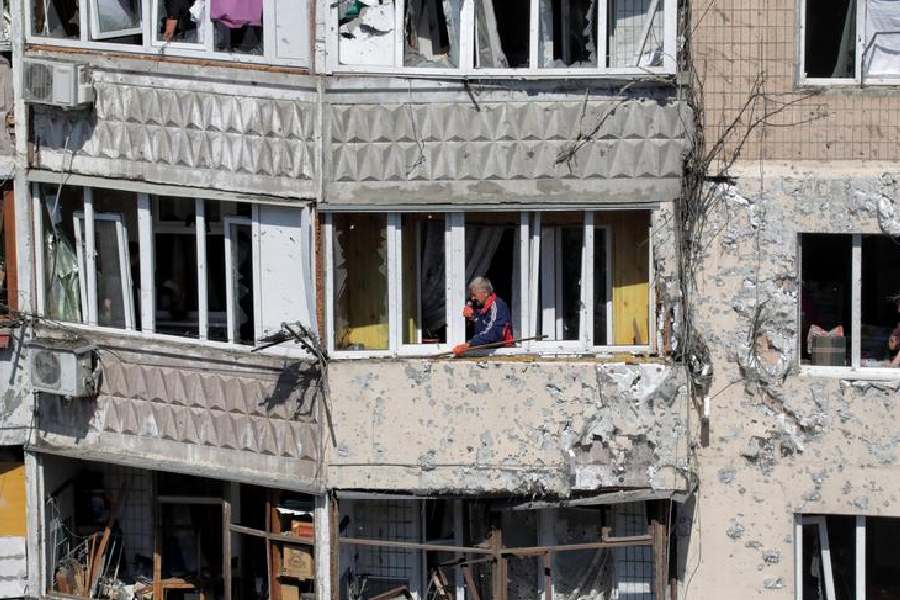Russia launched four cruise missiles at the Ukrainian port city of Odesa from a ship in the Black Sea overnight to Wednesday, with a strike on a civilian building killing at least three people, Ukraine's military said.
"As a result of air combat and blast waves, a business center, an educational institution, a residential complex, food establishments and shops in the city center were damaged," the South command of Ukraine's Armed Forces said on the Telegram messaging app on Wednesday.
Thirteen people were also injured in the attack, according to the South command. Three of the four missiles launched were intercepted by air defenses, it said on Facebook.
The three people killed were working at a retail chain's warehouse when a missile hit, it said, saying there might be others buried beneath rubble at the site.
The reports have not yet been independently verified.
Russia has always denied targeting civilian infrastructure during its full-scale invasion of Ukraine since February last year. It has not commented on the latest reported attacks.
The United Nations cultural agency UNESCO in January designated the historic center of Odesa as a World Heritage in Danger site.
The reported attacks on Odesa come a day after an aerial attack on Kryvyi Rih, the hometown of Ukraine's President Volodymyr Zelenskyy, killed 11 people.
A separate Russian missile strike in Ukraine's eastern Donetsk region also killed three people overnight, the governor Pavlo Kyrylenko said on Facebook.
He said two people were killed in Kramatorsk and another in Kostiantynivka.
Here are other main headlines concerning Russia's invasion of Ukraine on Wednesday, June 14:
Russian nuclear weapons arriving in Belarus: Lukashenko
Belarusian President Alexander Lukashenko has said his country started taking delivery of Russian tactical nuclear weapons.
"We have missiles and bombs that we have received from Russia," Lukashenko said in an interview with the Russian state TV channel Rossiya-1.
"The bombs are three times more powerful than those [dropped on] Hiroshima and Nagasaki," he said.
Lukashenko's announcement comes after Russian President Vladimir Putin in March announced a plan to deploy tactical nuclear weapons in Belarus.
This represents the first time Moscow has moved nuclear warheads outside Russia since the 1991 fall of the Soviet Union.
Since the beginning of Russia's full-scale invasion of Ukraine in late February 2022, Belarus has supported its ally and allowed it to stage attacks from its territory at the start of the aggression.
In 1945, the US attacked the Japanese cities of Hiroshima and Nagasaki with atomic bombs with the power of 15 kilotons and 21 kilotons of TNT respectively, killing and maiming hundreds of thousands of people.
Moscow calls for 'transparent' probe of Nord Stream blasts
A high-ranking Russian diplomat to the US has called for a "transparent and objective" international investigation of the bombings of the Nord Stream 1 and Nord Stream 2 natural gas pipelines in the Baltic Sea in late September last year.
"It would be useful to think about the reasons for the stubborn unwillingness of the collective West to launch a transparent and objective international investigation under the auspices of the UN Security Council in the terrorist attacks in the Baltic Sea," Andrey Ledenev, a minister-counsellor, was quoted as saying in a post on the Russian Embassy's Telegram messaging channel.
Ledenev also said the role of the US in the blasts should also be "clarified" after reports that the US allegedly warned Ukraine not to attack the pipelines.
So far, it has proven impossible to identify the perpetrators of the sabotage. Investigators say, however, that the scale of the operation means it was likely to have had state backing, with a number of nations having a possible interest in damaging or destroying the pipelines.











